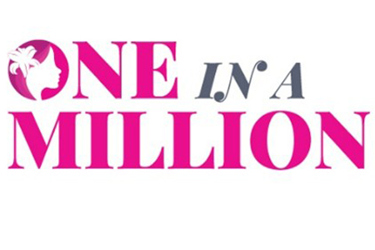'ONE In A MILLION' Aims To Bridge The Equity Gap In Clinical Trials
By Maimah Karmo, president and CEO, Tigerlily Foundation, and Jeanne Regnante, founder and CEO, Patient 3i

The fabric of the United States is richly diverse, woven from threads of different races, ethnicities, genders, ages, sexual orientations, and socioeconomic backgrounds. Yet the clinical trials that shape our future medicines and innovations often continue to fail to reflect this reality. While progress has been made in some areas, significant underrepresentation persists among racial and ethnic minorities, older adults, young adults, individuals in rural areas, and the LGBTQIA+ community, among others. This lack of inclusiveness isn't just statistical oversight; it limits innovation, perpetuates health disparities, and undermines the very goal of developing safe, effective treatments and devices for everyone.
When research doesn't include all communities, we are left with an inadequate understanding of how novel precision medicine therapies work across different populations, leading to collateral damage in the form of lost lives, broken families, and a healthcare system unable to deliver equitable outcomes. Take breast cancer, which is the leading cause of cancer death for Black and Hispanic women in the U.S., who are often diagnosed at later stages.1 There are a higher number of breast cancers diagnosed in Black women aged 20 to 29 and 30 to 39 years verses other demographic groups with more aggressive subtypes like triple negative breast cancer.2 Yet only 6% of global pivotal triple-negative breast cancer precision medicine trials included racial and ethnic minority populations.3 At the same time, only an estimated 3%-5% of adult cancer patients participate in clinical trials in the U.S. So how do we get to a place where more Black and Brown young women with early-stage cancer are included in precision medicine clinical trials studies for TNBC? We have some work to do together. We need to represent the under-represented.
A MILLION Ways Overcome Systemic Barriers To Inclusive Research
The challenges are well-known but persistently complex:
- Barriers to Participation: These include mistrust, limited awareness, geographic constraints, and poor communication.4
- Recruitment Challenges: Trials face delays or termination due to low enrollment, driven by high outreach costs and site burdens.
- Systemic Gaps: A critical shortage of scalable engagement models, authentic community partnerships, and trained clinical trial navigation support leaves us without sustainable solutions.
The barrier discussion might be getting old, so let’s start focusing on driving prospective strategies because we have enhanced representation. Let’s start with ONE in a MILLION.
To directly address these gaps, Tigerlily is spearheading ONE in a MILLION, a national public-private partnership set to launch in early 2026. This initiative is designed to engage, educate, and empower 1 million individuals in high-risk communities — including patients, caregivers, community-based organization staff, clinical trial staff, and healthcare providers — on the hope and opportunity of clinical trials, biomarker testing, education, empowerment, support, and community. We know that trusted community engagement, health literacy, and culturally-informed patient navigation are proven interventions to improve equitable care and trial inclusion. We also know that trusted communications with HCPs, particularly PCPs (GYNs), about clinical trials matter. With 85% of cancer treated in the community,5 we must meet patients where they are. Many sites don’t have these proven interventions that drive trusted education, reach, choice, and referral. So, we are merging national partner capabilities and strategies that matter for everyone.
ONE in a MILLION moves beyond siloed efforts by creating a coordinated ecosystem that connects and optimizes existing capabilities. We will collaborate with the community to tailor communication, address digital and health literacy needs, and coordinate a massive trusted referral network to clinical trial sites where people live.
The Solution: A National Ecosystem Of Trust And Action
Based on input from a variety of stakeholders, the following strategies will be amplified by the success of ONE in a MILLION, a national campaign and community-driven education program dedicated to educating 1 million people about the importance of clinical trials:
- Patient-Centric Trial Designs: Participation of inclusive, geographically diverse populations provides greater opportunity for patient experience and insights in clinical trials. Additionally, data validates decentralized trial models (e.g., home visits, remote monitoring) and user-friendly health literate digital tools with translation (e.g., eConsent), making them more reliable and justifiable for wider use. Finally, patient-centric trials drive interest in non-therapeutic study types, such as behavioral research critical for HEOR.
- Site Selection: Success in representative referral to clinical trials proves the value of partnering with community hospitals and local clinics where 80% of cancer is treated. In the U.S., building a trusted network will support faster, more cost-effective recruitment in future trials. In addition, several stakeholders suggest that the ONE in a MILLION framework will inform a global framework as the majority of current clinical trial sites for global studies are outside the U.S.
- Data and, of course, AI: Representative patient data from their greater participation in trials creates higher-quality, more representative data sets that improve the training of AI algorithms (e.g., for site selection or data analysis), reducing algorithmic bias and increasing the value of digital investments.
- Having Patients Lead: Industry talks about this a lot but people don’t really get it. Think about the mantra, “Know your lane and stay in it.” Pharmaceutical companies make innovative drugs — keep doing that. Oncologists make sure patients are administered the drugs — check. Patients have the lived experience — check. Patient advocacy groups are on the ground in communities serving patients. So, it only makes sense that patient advocacy groups and those they serve are the people who have the relationships in the community to improve the clinical trial ecosystem.
A Coalition Of Capabilities: Our National Partners And Selected Voices
The abovementioned success hinges on collaboration. ONE in a MILLION brings together a powerful alliance of national organizations:
- Society for Clinical Research Sites (SCRS) unifies the voices of over 11,000 global research sites to streamline site engagement and best practices.
- Association of Cancer Care Centers (ACCC) represents more than 45,000 members from 1,700+ cancer programs and practices — approximately two-thirds of all oncology programs in the U.S. Through ACCC's Community Oncology Research Institute (ACORI), we build capacity and competency among community research programs, democratizing the knowledge, skills, and infrastructure needed to advance clinical trial participation.
- Quantum Leap HealthCare Collaborative (QLHC) offers a health-literate clinical trial search platform and clinical trial navigation staff to connect patients directly to sites/investigators.
- Academy of Oncology Nurse & Patient Navigators (AONN+) sets the national standard for clinical navigation, a proven intervention to guide patients through the cancer care continuum.
- Amplity Comms delivers trusted, relevant oncology content directly to specific audiences across the cancer care continuum. With overall reach of more than 125,000 print subscribers and 40,500 digital subscribers, Amplity’s publications are known for authoritative information, practical guidance, and insights that inform both clinical and operational decisions.
- Comprehensive NCI Cancer Centers: Memorial Sloan Kettering Cancer Center, New York and City of Hope Cancer Center, California, are the first of several NCI Cancer Centers anticipated to join ONE in a MILLION.
A Governance Model For Sustainable Impact
ONE in a MILLION will be governed by a multi-stakeholder framework, including a steering committee and dedicated strategically aligned working groups and a clinical trial site alliance co-chaired by patients, community leaders, partners, members, and Tigerlily ANGEL Advocates. This ensures transparency, upholds patient choice, and drives action and realistic recommendations in key areas. Our five-year, ecosystem-driven approach will be backed by rigorous and SMART rolling metrics and KPIs in the following categories: accountability and transparency; education and social media outreach; and a trusted clinical trial referral workflow to sites.
A Call To Collective Action
ONE in a MILLION is more than a campaign, more than a program; it is a pledge to reimagine the clinical research ecosystem together. It is a recognition that we cannot achieve health equity without health literacy, community engagement, and navigation support, and we cannot have innovation without inclusion. By crowdsourcing trust, education, and navigation, we can build a future where clinical trials are an accessible, trusted option for every person, in every community. Because their lives depend on us, working together.
To learn more about membership opportunities in the ONE in a MILLION initiative, please contact jeanne@tigerlilyfoundation.org.
References:
- Breast Cancer Death Rates Are Highest for Black Women—Again | Breast Cancer Facts & Figures, 2022-2024 | American Cancer Society
- Xu S, Murtagh S, Han Y, Wan F, Toriola AT. Breast Cancer Incidence Among US Women Aged 20 to 49 Years by Race, Stage, and Hormone Receptor Status. JAMA Netw Open. 2024;7(1):e2353331. doi:10.1001/jamanetworkopen.2023.53331
- AACR Science of Health Cre Disparities, 2025, A call for a modernized TNBC/mTNBC clinical trial: Ensuring equity, precision medicine, and survivorship for young Black women [abstract]. https://doi.org/10.1158/1538-7755.DISP25-B120
- Public Perceptions of Clinical Trials: A Comprehensive Survey - Advarra
- Bringing Research to the Community to Reduce Cancer Disparities - NCI)
About The Authors:
 Maimah Karmo is the president and CEO of the Tigerlily Foundation, a nationwide organization dedicated to advocating for women in healthcare and oncology. Maimah is a 19-year TNBC survivor and is also a passionate leader when it comes to health equity and the delivery of heart-centered care throughout the care continuum. Maimah is committed to empowering individuals and organizations and healthcare professionals to embrace authenticity, purpose, and collaboration in their leadership journeys and in how they serve their patients.
Maimah Karmo is the president and CEO of the Tigerlily Foundation, a nationwide organization dedicated to advocating for women in healthcare and oncology. Maimah is a 19-year TNBC survivor and is also a passionate leader when it comes to health equity and the delivery of heart-centered care throughout the care continuum. Maimah is committed to empowering individuals and organizations and healthcare professionals to embrace authenticity, purpose, and collaboration in their leadership journeys and in how they serve their patients.
 Jeanne Regnante is the founder and CEO of Patient3i, LLC (Patient Insights Inspire Innovation). Jeanne and her team of experts are dedicated to advancing modernized healthcare strategies that drive meaningful initiatives, practices, and impact through patient engagement, patient experience, community engagement, research, and equitable practices across the continuum of care, globally, nationally, and locally. They work with multiple stakeholders including health system leaders, cancer center leaders, patient organizations, professional organizations, digital health experts, health literacy experts, clinical services organizations, data services, community-based organizations, pharma leaders, startup leaders, and policy leaders.
Jeanne Regnante is the founder and CEO of Patient3i, LLC (Patient Insights Inspire Innovation). Jeanne and her team of experts are dedicated to advancing modernized healthcare strategies that drive meaningful initiatives, practices, and impact through patient engagement, patient experience, community engagement, research, and equitable practices across the continuum of care, globally, nationally, and locally. They work with multiple stakeholders including health system leaders, cancer center leaders, patient organizations, professional organizations, digital health experts, health literacy experts, clinical services organizations, data services, community-based organizations, pharma leaders, startup leaders, and policy leaders.
